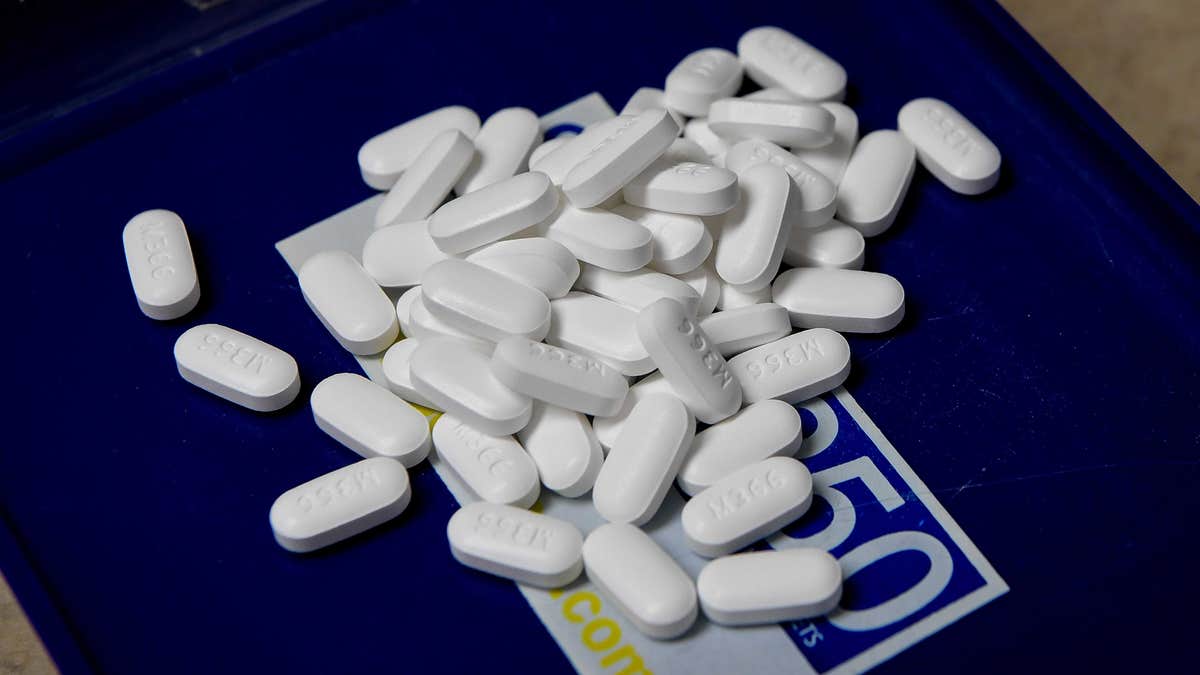One million fentanyl pills seized at Arizona border in one week
Fox News' Bill Melugin reports from Eagle Pass, Texas, on the new fentanyl hotspot in Nogales, Arizona.
FIRST ON FOX: The White House on Thursday is announcing over $12 million in funding for programs to prevent substance abuse by young people across the U.S. as the Biden administration looks to tackle what it describes as an "overdose epidemic."
The $12.4 million in grants will fund 99 programs that are working to prevent youth substance abuse -- including a range of substances from opiods to marijuana, tobacco and alcohol.
It was announced at the Putnam Wellness Coalition in West Virginia by Dr. Rahul Gupta, the director of the White House’s Office of National Drug Policy, who said that such grants reinforce the commitment to preventing youth substance abuse as part of President Biden's agenda to beat the "overdose epidemic."
"I strongly believe that prevention efforts, especially for children and youth, is the best return on investment we can make as a nation," Gupta told Fox News Digital in an interview. "Drug-Free Communities grants are ones that go directly from the White House to local communities, which allows us then to leverage taxpayer funds directly into impact youth prevention."

Tablets of the opioid-based Hydrocodone displayed at a pharmacy in Portsmouth, Ohio, on June 21, 2017. (Reuters/Bryan Woolston/File Photo)
The grants are being deployed in line with the National Drug Control Strategy announced by President Biden last year, which uses a whole-of-government approach to expand access to prevention and recovery resources, while also cracking down on drug supplies.
DEA WARNS OF ‘NATIONWIDE SPIKE’ IN FENTANYL-RELATED MASS-OVERDOSE DEATHS
Specifically, when it comes to youth substance abuse, the grants are aimed at addressing factors that can lead to it -- including mental health and academic issues, as well as poverty. They are funded by the Drug-Free Communities Support Program, created in 1997 to prevent youth substance abuse. So far in fiscal year 2022, a total of 745 community programs have received over $93 million in grant funding, the White House said.
"We know from evaluations that we've done, because there's a strong evaluation component, that when this work is happening in those 700 communities across the country, the rates of substance use in youth like tobacco, drugs, marijuana and others goes down as compared to those that don't have these programs in their communities," Gupta said.
"This is a top priority, with a sense of urgency to address the abuse crisis, but it starts with prevention and prevention is the best return on investment when you look at it. And getting money directly to communities is so vital to make sure that [prevention programs] are working and they're working effectively," he said.
Gupta stressed that the grants allow programs not only to get the funding they need but also to cater their response to the community instead of a one-size-fits-all approach.
"They allow 12 sectors of the community to come together first to figure out what's what is the challenge in that particular community, so it's a very customizable grant," he said. "So those 12 sectors include law enforcement, business, faith-based, nonprofits, medical, public health, education, and so many others. So these different sectors come together and see what their local challenge is. And they look at the top three things that are challenges in that community, and then they address those things."
"We have to have the ability for communities to use evidence-based models to customize solutions for themselves. And that's exactly what this grant supports," he said.
The grants will also raise awareness about the dangers of illicit fentanyl, which has become a major national crisis in recent years and one that the White House has taken a multi-faceted approach to address.
SAN DIEGO BECOMES ‘EPICENTER’ OF FENTANYL SMUGGLING AMID SPIKE IN DEATHS, DRUG SEIZURE
Of the more than 108,000 overdose deaths last year, more than 80,000 were linked with fentanyl, officials say. The Drug Enforcement Administration has previously warned that the drug, which is created in Mexico using Chinese precursors and smuggled across the southern border, is killing Americans at an "unprecedented rate."
In July there was 2,100lbs of the drug seized at the border by officials, up 202% from the 640 lbs seized in June.
CLICK HERE TO GET THE FOX NEWS APP
The synthetic opioid is typically used for treating severe pain and is 50-100 times more potent than morphine. It is frequently cut with other drugs, meaning that users may often be unaware that they are ingesting the potent substance.
Gupta said that young people are "significantly affected" by the opioid crisis.
"It is an evolving process because now we're seeing these pills, counterfeit drugs that are often being marketed through social media to impact youth," he said. "And the fact is…if you're attempting to obtain drugs anywhere other than prescription drugs through a legitimate pharmacy, two out of five chances are there that they will have fentanyl, often a lethal dose in it."
The White House has focused both on treatment of those affected, while also investing in agencies to stop smuggling and interdict smugglers. It has produced a U.S.-Mexico framework that includes preventing transborder crime, and a FY 2023 budget proposal that calls for a $42.5 billion investment in agencies for national drug control programs, as well as $293 million to prevent fentanyl coming across the border. Earlier this year, it successfully lobbied the U.N. to ban opioid precursors















































